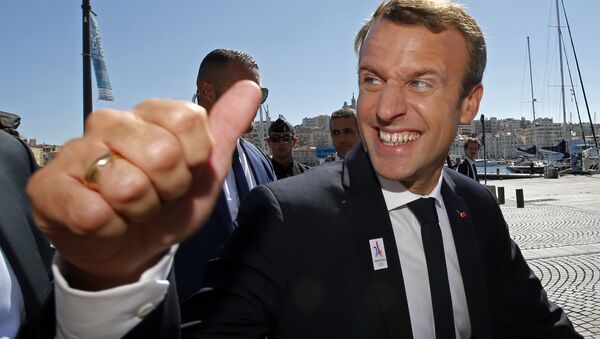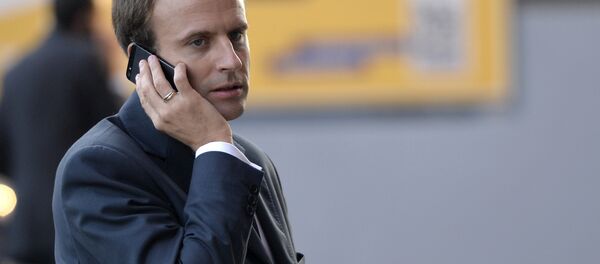In a striking similarity to the fall-out between Donald Trump and the US press, President Macron angered French outlets by granting an interview to CNN International instead of them.
Ignoring their requests to talk immediately after his United Nations General Assembly address on Tuesday, September 19, the French president chose instead to sit down with journalist Christiane Amanpour to discuss his diplomatic policy, North Korea and climate change.
Looking forward to interviewing the man who defied the anti-globalist, populist trend – my exclusive w/ President @EmmanuelMacron. Tuesday. pic.twitter.com/tkxQz4VYHy
— Christiane Amanpour (@camanpour) September 18, 2017
To compound matters further, Mr. Macron chose to speak in English rather his own national language, a move that has further incensed many of his countrymen.
Later Mr. Macron, who has refused to give an interview to French television since his election victory in June, 2017, rounded on his media critics, accusing them of being "totally narcissistic."
"I am at the United Nations and a journalist offered to do an interview on my diplomatic policy, and I did it. Given the seriousness of the issues, let's talk about the challenges facing the planet and stop talking in such a circular way about communication," Mr. Macron said.
The president continued: "When I see the time spent in the past four months commenting only on my silences and my sayings, I think that it is a totally narcissistic system," he said, adding that French outlets appeared to be more interested in communication than "content."
Laurent Bazin, a television presenter, later took to social media and tweeted:
#Macron réserve sa première interview télé de President à @cnni. Sa "pensée complexe" est sans doute plus simple à comprendre en anglais.
— Laurent Bazin (@laurentbazin) September 20, 2017
Tweet: "Macron reserves his first TV interview for CNN. His 'complex thinking' is probably easier to understand in English."
Laurent Wauquiez, joined the criticism as he seized the opportunity to further his canches of winning the leadership of the conservative Republicans party. He said the president's performance in New York was part of a pattern.
"I see a president who is extremely contemptuous of the French and very cut off from the reality of their lives," he remarked.
French Media Bites Back
Macron's feud with the media began earlier in September, when the French centrist leader accused journalists of being "too interested in themselves" while visiting a school in eastern France.
Mr. Macron said the TV reporters who had traveled with him to cover the event should be talking about the 12 million students returning to school after the summer break, not asking about him.
BFM TV, France's most-watched rolling news channel, retaliated by saying the president's comments "appeared contradictory given the lengths [he] goes to manage his image since the start of his mandate."
"In the bistrot just like in the Elysee, whacking journalists is a national sport," Le Point wrote.
Similarly, in L'Obs, media commentator Daniel Schneidermann noted that "just a few moments after knocking journalists for professional narcissism, [Macron] posted [on his official Twitter] account the following video, whose informative value about the country, its energies and hopes shine through."
Earlier, he tried to justify his lack of contact with French journalists by arguing his "complex thought process" did not lend itself well to one-on-one interviews.
Despite his running battle with the media, however, Macron praised freedom of speech at the UN on September 19. Addressing world leaders, he said: "It's the UN's job to protect the freedom of those who think, reflect, speak out, and particularly the freedom of the press. That's why I'm calling for a special representative of the secretary general for the protection of journalists in the world."
The fall-out comes at a bad time for the French president whose popularity is already starting to wane. His economic reforms resulted in a mass rally in Paris on Thursday, September 21.
Under Macron's proposals, it would be easier for companies to hire and fire workers, as well as give them more authority over pay and working conditions.
The French government is also considering moves to outlaw the country's macho culture by making it a criminal offense to harass someone in a work place, including wolf-whistling.



